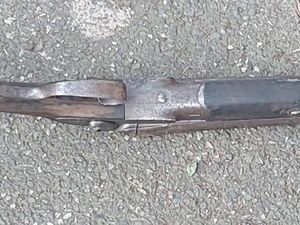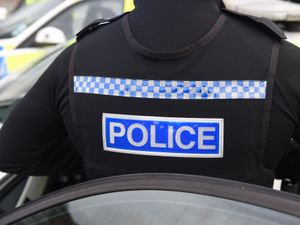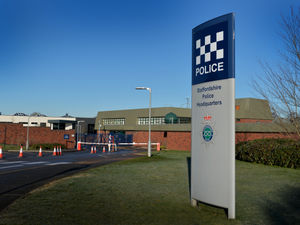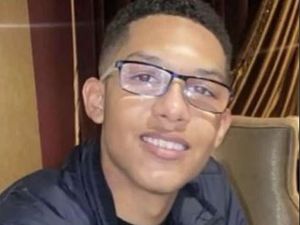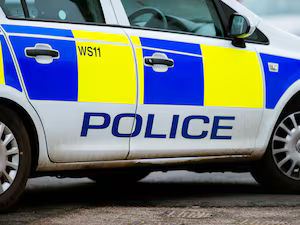Hillsborough disaster: Criminal investigation expected to finish this year
Two huge criminal investigations into the Hillsborough disaster and its aftermath could finish by the end of the year.
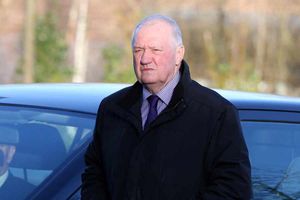
A police probe is looking at the lead-up to the tragedy and the day of the doomed match itself, and a separate inquiry by watchdog the Independent Police Complaints Commission (IPCC) - the biggest in its history - is investigating the alleged cover-up afterwards.
Hundreds of investigators have worked on both inquiries, facing the challenge of hunting for decades-old evidence, some of which was contained on 1980s floppy discs or in water-stained notebooks stashed in garden sheds.
MORE: Unlawful killing ruling ends 'greatest miscarriage of justice'
MORE: The Cannock 22-year-old among the 96 victims
A raft of individuals and organisations could be charged with criminal offences that may include gross negligence manslaughter, misconduct in a public office, perverting the course of justice, perjury, or health and safety breaches.
Police have not named any suspects, but eight former officers were represented by lawyers at the inquests and what they said in the witness box forms part of the criminal inquiry.
Any prosecution of match commander David Duckenfield must first overturn the stay on future proceedings against him.
After a jury failed to reach verdicts following a private prosecution at Leeds Crown Court in 2000 for manslaughter brought by the Hillsborough Family Support Group, Mr Justice Hooper stayed proceedings and refused a new hearing. Mr Duckenfield's lawyers successfully argued a further trial would be "oppressive".

A Crown Prosecution Service (CPS) spokesman said that to overturn the stay, crown lawyers would have to argue for a new prosecution in front of a judge. One ground for a new trial could be based on new evidence or other circumstances that mean a significant difference to the case.
Organisations that could face prosecution include Sheffield Wednesday FC, who hosted the game, Sheffield City Council, which issued the ground's safety certificate, and the Yorkshire Ambulance Service, which was involved in the emergency response.
The Football Association is also subject to investigation.
Both the police inquiry, Operation Resolve, and the IPCC inquiry are expected to finish in December or January, and once files are passed to prosecutors a decision on charges by the CPS is expected to follow within three to six months.
Assistant Commissioner Jon Stoddart, the former Chief Constable of Durham who heads Operation Resolve, would not identify suspects, but said: "We have a number of suspects, both individuals and organisations, and we have conducted a large number of interviews under caution with those suspects."
His 190-strong team has followed up thousands of lines of inquiry, and uncovered 75,000 new documents relating to the disaster.
Mr Stoddart added: "Today is a day for the families. They have fought hard for many years for these new inquests and today brings an end to this particular part of their journey.
"Now that the inquests have concluded my sole focus is on completing the criminal investigation which I expect will be finished by the turn of the year. It will then be for the Crown Prosecution Service to consider the evidence and decide whether any individual or organisation should face criminal prosecution."
During its probe the IPCC has seized 7,000 exhibits including 167 floppy disks which required the purchase of a 1980s computer by investigators. Some police officers' pocketbooks were recovered from lofts and found languishing in garden sheds, with specialist treatment needed on those that were water damaged, while some were covered in rodent droppings.
The IPCC says it is considering 260 police accounts which appeared to have been amended in some way. Another ongoing line of inquiry is the role of West Midlands Police, who were tasked after the disaster with gathering evidence for the Taylor Inquiry, the original inquest and the criminal investigation.
Another line of inquiry was to examine why blood alcohol levels were taken from those who died and some fans who were injured in the disaster, and allegations that Hillsborough families and campaigners were put under police surveillance in the years following the tragedy.
IPCC deputy chairwoman Rachel Cerfontyne said: "The conclusion of the inquests is another milestone and a day when my thoughts are with the families and friends of those who died as a result of the disaster.
"Our attention now focuses on concluding our criminal investigation into the aftermath of the disaster. This is by far the biggest and most complex investigation ever undertaken by the IPCC."
Sue Hemming, head of the Special Crime and Counter Terrorism Division at the CPS, said: "Following the inquests' determinations the CPS team will continue to work closely with Operation Resolve and the IPCC as in due course the CPS will formally consider whether any criminal charges should be brought against any individual or corporate body based upon all the available evidence."

